Discover the future of construction
Curious about what’s next for the industry? Explore expert insights on the five key trends shaping the future of construction – from sustainability and digitisation to workforce evolution and beyond.


Sustainability is reshaping industries, and construction is no exception. Hilti Group is leading the shift, embedding sustainability into operations, products, and partnerships. We spoke with Peter Rupp, Head of Corporate Sustainability, about how Hilti is moving from compliance to real impact.
It’s more than obvious that increasing sustainability is a leading cause for change in many sectors. And this applies to the construction sector as well. Hilti is at the forefront of driving lasting change. We spoke with Peter Rupp, Head of Corporate Sustainability at Hilti Group, about how the company is embedding sustainability into its business practices, from product innovation to stakeholder engagement.
The construction industry touches every aspect of modern life, but it’s also carbon-intensive and ripe for transformation. At Hilti, sustainability is part of our DNA. It’s not a silo; it’s embedded in our corporate strategy and reflects our purpose: making construction better through productivity, safety, and sustainability.
Becoming carbon neutral in our own operations by 2023 was the first milestone on our journey towards net-zero by 2050. We’ve strategically expanded our photovoltaic installations on our own buildings worldwide, transitioned to 100% green electricity and are converting our global vehicle fleet. We’re also scaling our circular business model, reusing tools and parts through services like Fleet Management. The key lesson? When sustainability aligns with customer value, impact follows.
By building it into our business rhythm through KPIs, investment decisions, product roadmaps. We listen to our employees and customers, and we hold ourselves accountable through external frameworks like the Science Based Targets initiative (SBTi), the EcoVadis rating or our Sustainability Report.
It starts at the design table. We ask: How repairable, reusable, or recyclable is this tool? We’re also partnering with low-emission suppliers and using more recycled materials. Sustainability and innovation now go hand in hand.
Absolutely. Our tool park optimisation and on-demand leasing services are scaling fast. They help customers reduce overbuying and emissions. And we’re excited about expanding CO₂ reporting tools, helping customers meet their own targets.
We see regulations, like CSRD, as a chance to allow for standardisation and comparability, and also to raise the bar. We’ve aligned our reporting with the double materiality principle and are integrating sustainability into financial and strategic planning across the group.
Purpose. Making construction better. And there is a pull from all sides: regulators, customers, and our own people. The toughest challenge? Tackling Scope 3 emissions across our supply chain. That’s where real impact lies, and we’re tackling it.
Embed sustainability into how you operate, not just how you communicate. Start now, even if the data isn’t perfect. And collaborate—real change in this industry only happens when we move together.
Curious about what’s next for the industry? Explore expert insights on the five key trends shaping the future of construction – from sustainability and digitisation to workforce evolution and beyond.
Please fill in your name and E-mail to download this file.